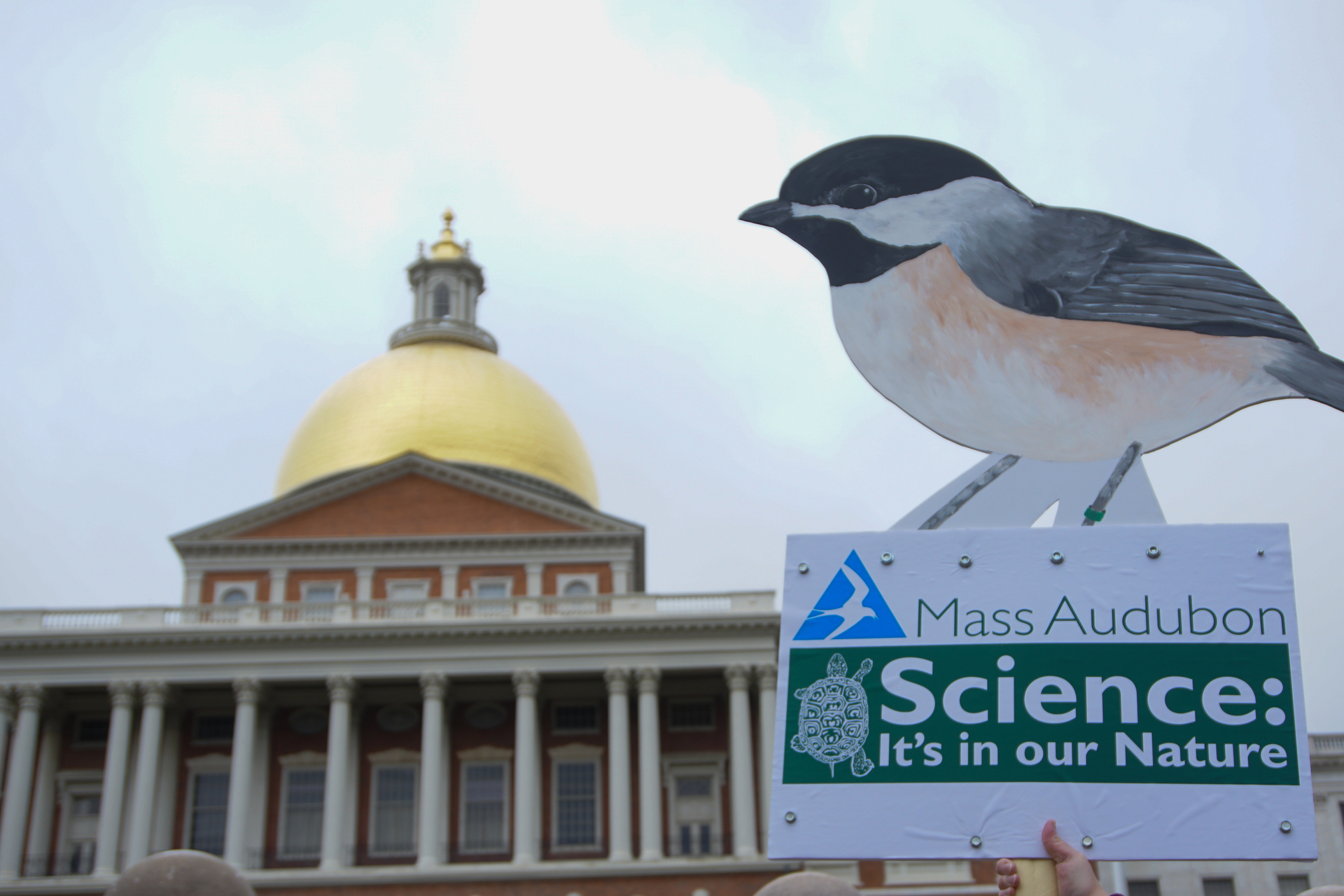A Momentous Week in Climate History
August 19, 2022
It’s mid-August, which means the formal legislative session on Beacon Hill is over. Here’s what happened on the federal and state level and what this means for our efforts to meet our advocacy campaign goal of securing $1 billion in new public funding for nature and climate.
In just the last few weeks, major federal climate legislation—the Inflation Reduction Act (IRA)—was quickly resurrected and passed in the Senate, and we are thrilled that President Biden signed it into law this past Tuesday. We expected a slimmed down, compromised climate bill to emerge, but we would have never guessed that they would produce legislation of this incredible scope and impact.
The package provides tax credits for wind, solar, energy storage, energy efficiency, electric vehicles, heat pumps, climate-smart forestry and agriculture, coastal ecosystem restoration, and more, with an emphasis on investments in environmental justice communities.
Estimates of the IRA’s impact find that U.S. greenhouse gas emissions are likely to be reduced by 40% by 2030—this comes close to the Biden Administration’s 2030 commitment of a 50% reduction. Critically, this builds much-needed credibility for U.S. climate leadership among the international community.
And it will also put additional wind behind the sails of Massachusetts’ climate goals for 2030 and beyond, by making the transition to low-carbon, energy-saving technologies even more affordable and attractive for homeowners and businesses here in the Commonwealth.
On Beacon Hill, Mass Audubon and our advocates and supporters fought right up to the July 31 deadline to try to get three key bills over the finish line:
- A critically important “Economic Development” bill, which included hundreds of millions of dollars for land protection, clean water, climate, and clean energy;
- A major state climate bill to advance the offshore wind industry and implement strategies for reducing greenhouse (GHG) emissions from vehicles and buildings; and,
- The Public Lands Protection Act, a bill to protect public lands that have been deemed environmentally significant.
Economic Development Bill
The Economic Development bill, containing hundreds of millions in funding for open space, clean water, and our other priorities, did not move forward, and talks are currently dormant. The failure to advance this key bill resulted from a major disagreement between Governor Baker and the legislature over tax relief. We are profoundly disappointed by this outcome and what it means for our priorities for major investments in nature.
Given how important this bill is to our mission and the interests of our 160,000 members, and to the many other conservation partner organizations we worked with, there is a good chance that after the dust settles, the Legislature will address it later this year. If that happens, we’ll be there to ensure that our highest priority, securing $1 billion in investments for nature-based climate solutions, are at the front of the line. Otherwise, we will push for this to be the top priority for the next legislative session.
>>>What’s Next on Economic Development? Stay tuned for updates on our advocacy tactics and on ways you can help us achieve our goals over the next few weeks.
State Climate Bill
The bill for climate and offshore wind signed by Governor Baker last Thursday is an impressive achievement. The Massachusetts Legislature set forth an exciting set of policies that will accelerate implementation of the ambitious targets of 2021’s Next-Generation Climate Roadmap law.
The bill includes comprehensive plans to shift all new car sales in Massachusetts to electric by 2035, green the MBTA fleet, and pilot new fossil-free building construction in 10 cities and towns. Critically, the bill supports the offshore wind industry in a way that will cement Massachusetts’ status as a leader in a 21st century clean energy economy and provides workforce development opportunities for residents of environmental justice communities.
>>> What’s Next in Massachusetts on climate and offshore wind? You’ve been part of our collective voice on this, through our Action Alert urging Governor Baker to sign the bill—and thank you for that! We are already planning to improve upon this climate bill, which is neither perfect nor all-encompassing.
This fall and next session, we will push the Legislature to focus on nature’s role in our climate solutions by creating strong incentives for the protection of our natural and working lands and establishing a permanent fund for land conservation and climate resilience. And we will push offshore wind developers to not only account for the impacts of their installations on habitat and wildlife, but to provide funding to mitigate these impacts as other states have done.
Public Lands Preservation Act
On the “Public Lands Preservation Act” (PLPA), the Legislature also failed to meet the July 31 deadline for resolution.
>>> What’s Next for the PLPA? After decades of advocacy on this bill, we believe that support from our partners, the public, and key legislative champions for PLPA is at an all-time high. Talks in the Legislature remain active, and we are confident that the bill can be finalized in an informal legislative session this fall. We’re working closely with partners and legislators on ironing out the details, and we hope there’s good news to share soon.
Get Involved
Interested in helping us achieve policy wins for nature and climate? Sign up to be a Climate Champion and join our fight on these critical issues.



